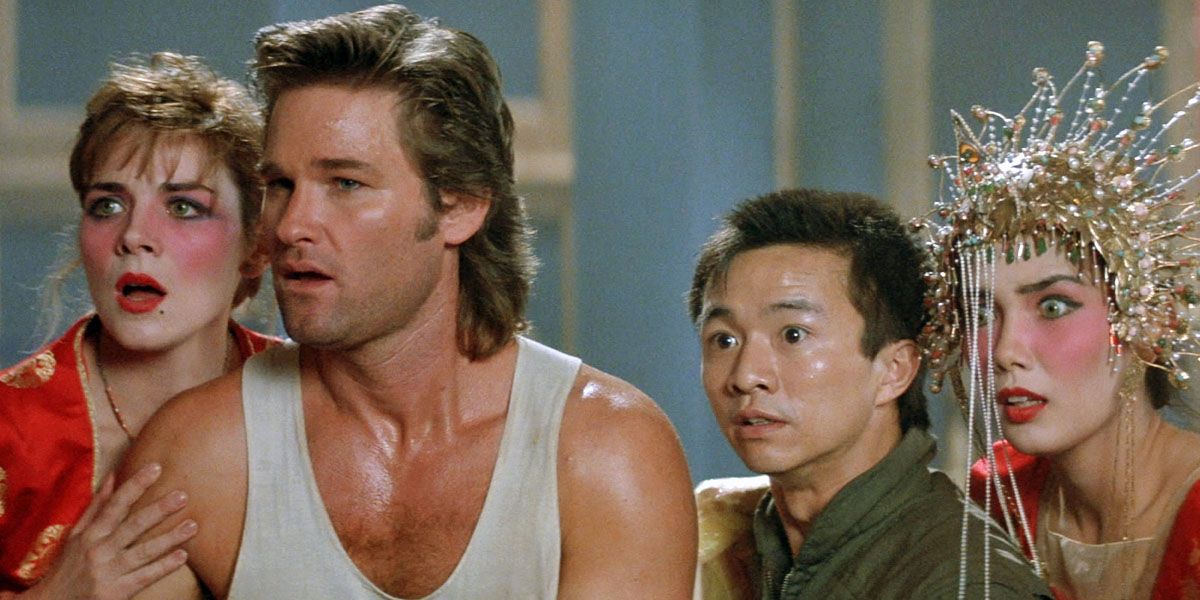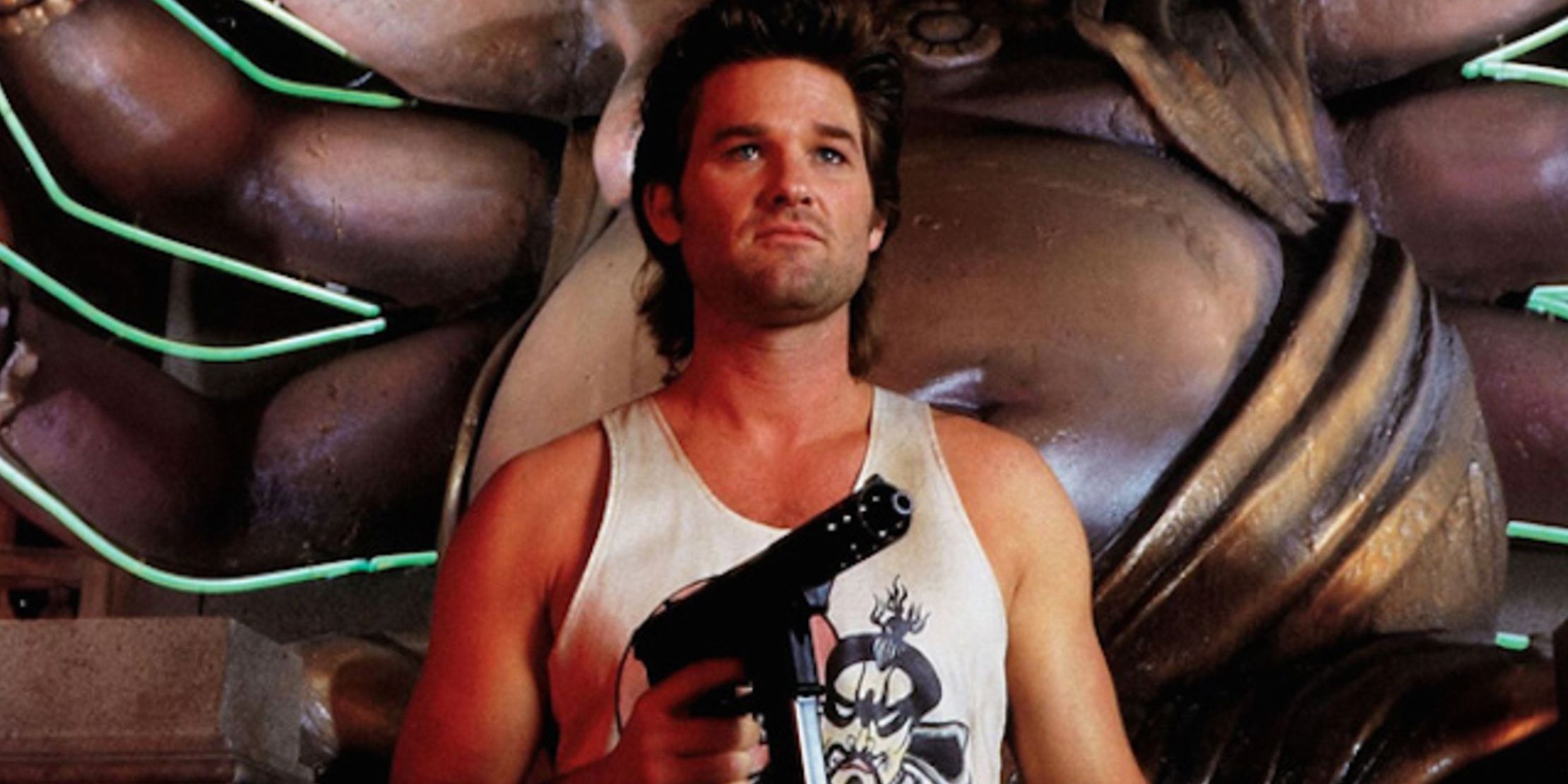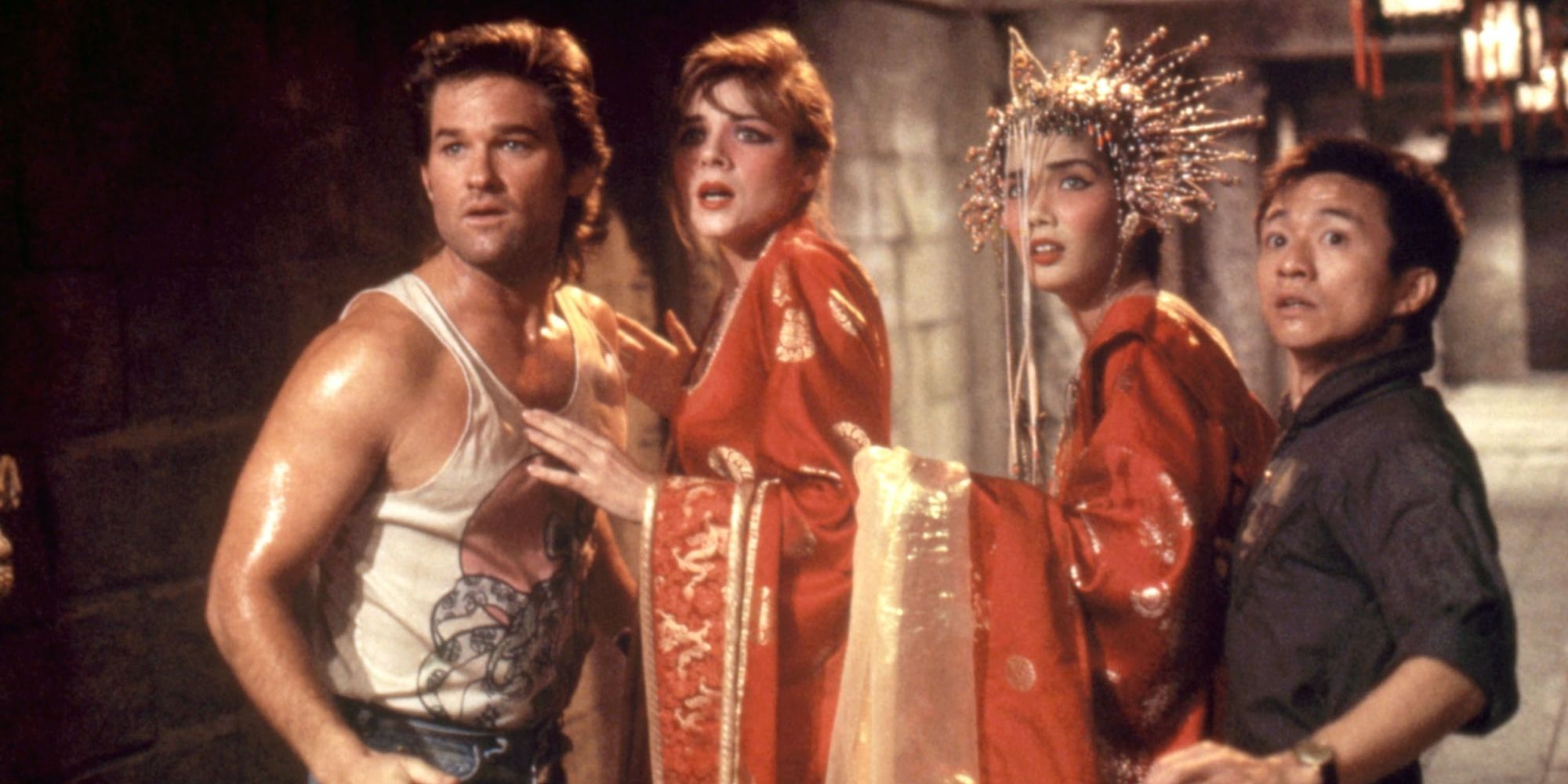
John Carpenter's 1986 film Big Trouble in Little China was a box office failure during its original release. However, it has grown to become a beloved cult film in the years since. The movie follows truck driver Jack Burton, played by Kurt Russell, as he stumbles into the mysterious world of the Chinatown underground, home to an ancient sorcerer who attempts to free himself from a centuries-old curse. The film is a martial arts action-comedy, but it also functions as a commentary on the white male power fantasy in cinema. Jack Burton has all the trappings of a typical leading man who would serve the stereotypical wish-fulfillment role, yet the film undercuts that power ideal at every opportunity.
Jack stumbles into the events of the film while trying to cash in on a bet he made with a friend Wang Chi. He drives his friend to the airport to pick up his fiancée, Miao Yin There, they meet Gracie Law. Miao is suddenly kidnapped and Jack helps Wang in his pursuit to get her back. In the process, Jack's truck is stolen, and getting it back becomes his priority. Jack, Wang and Gracie end up freeing many women held captive by the sorcerer David Lo Pan and disrupt his plans to marry a green-eyed woman to break the curse against him. Throughout the course of the film, Jack is bested at nearly every turn and his successes are often a matter of luck or caused by the actions of his more qualified friends. These details expertly undercut the convention of the white male power fantasy.

The white male power fantasy is an action movie trope used with the intention of representing the ideal version of a straight white man for the sake of appealing to a white male audience. These characters are often physically strong, attractive, competent and come out victorious in all of their pursuits. Even if they do suffer minor setbacks, they recover stronger than before. Big Trouble in Little China mocks the stereotypes of the role with the way it presents Jack. Because of this, Jack remains a charming and likeable character. By subverting the convention, Jack is able to be a more well-rounded character than if he was just the stock archetype.
When Jack tries to lead the escape of the captive women, he leads them directly into a trap. They are forced to scatter, hide and fight their way out. While the heroes do manage to escape, it is mostly because Wang is able to best the henchmen in hand-to-hand combat. When Jack finally jumps out from his hiding spot, ready to fight, there are no adversaries left because Wang already defeated them. Then, as a result of the trap, Gracie is kidnapped. Jack contributed no masculine or heroic value to this plot point whatsoever.
This leads to the climax of the film where Jack and Wang return to the underground to save Miao and Gracie who are under Lo Pan's spell. As Jack, Wang and their allies get ready for the fight, Jack shoots his gun up at the ceiling in a classic cool-guy move. However, this totally backfires. The bullets dislodge the stones above, which crash down on Jack's head and knock him out for a large majority of the climax. Instead of Jack being the macho hot-shot who single-handedly saves the day, he is sidelined by his own reckless hubris. Other movies would have highlighted Jack's abilities and strengths as an appeal to a perceived white male audience. Instead, the movie mocks not only Jack the character, but the audience's expectations as well.

Jack eventually recovers and joins the battle. He rescues Gracie and goes after Lo Pan, but even then, the movie undercuts his heroism. Jack and Gracie kiss before he goes after Lo Pan, in a classic action movie hero move, but it is undercut by the fact that Jack then has lipstick on his lips from her kiss. After he kills Lo Pan, instead of turning up the sexual chemistry between Jack and Gracie, Gracie's actions become more maternal in nature as she tries to clean the lipstick from his face. His reward for defeating the antagonist is to be infantilized instead of immortalized. Gracie is not impressed by him, which completely undercuts the expectations for a character typically in that role.
The film ends with Jack Burton heading back out on the road, and continuing his life as a simple truck driver. He spent the whole movie believing himself to be the lone wolf hero, and all along the movie undercuts that image. He is not as competent a fighter as Wang, he knocks himself out during the climax, and when he finally does get the girl he is infantilized rather than sexualized. Jack Burton is a fun movie character that is not only entertaining but also a commentary on the white, male power fantasy archetype in film.
0 Comments